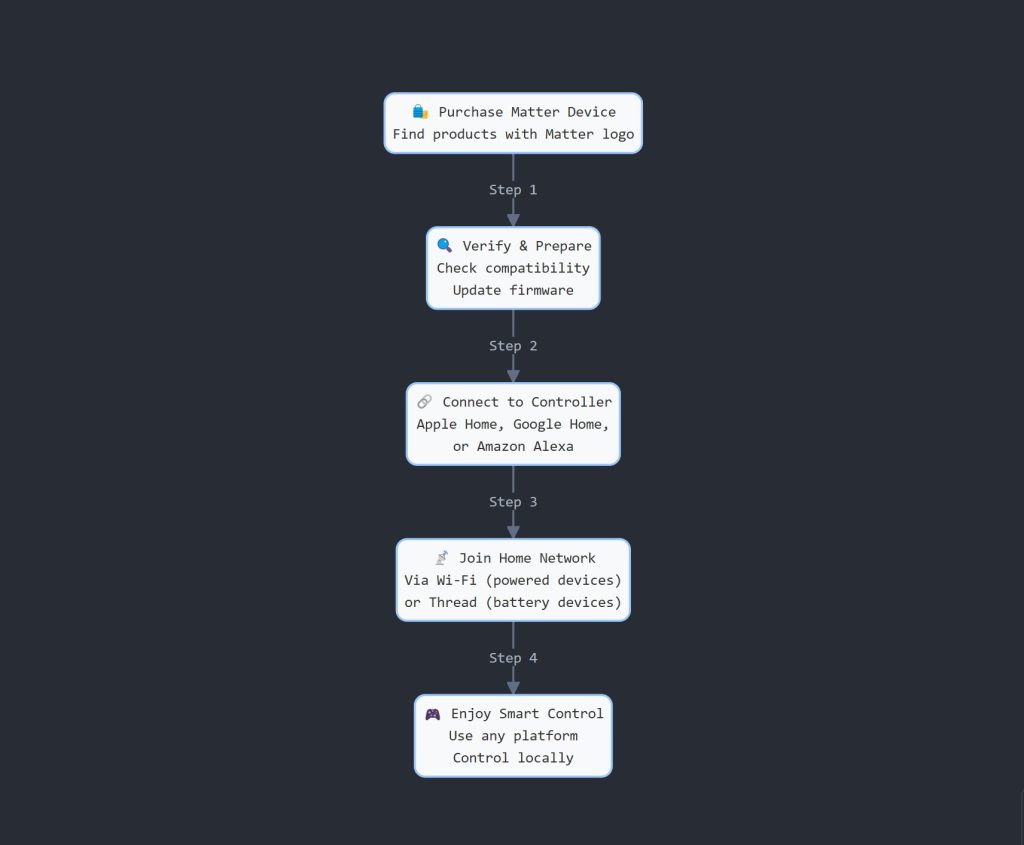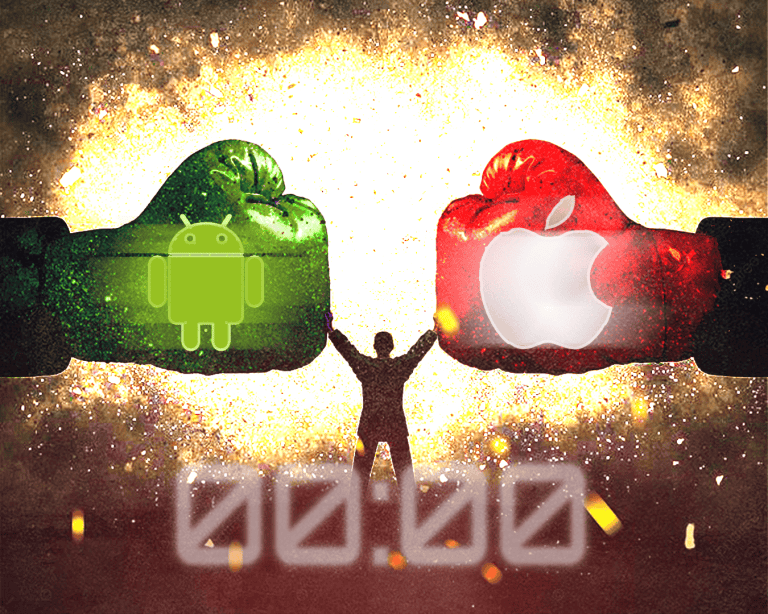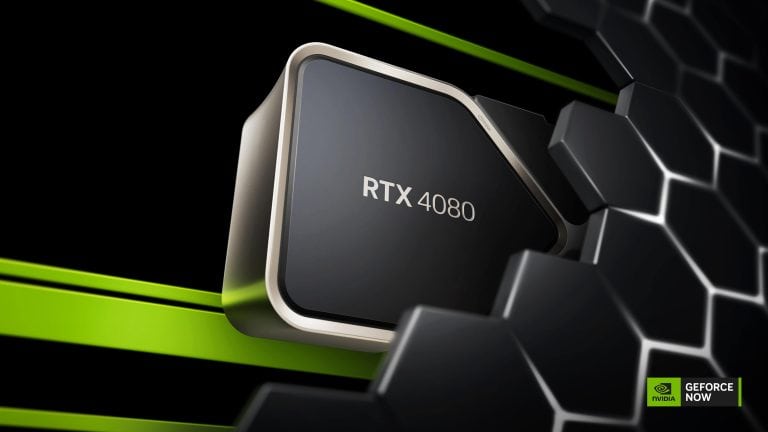Matter: The Universal Translator Your Smart Home Needs
We’ve Been Promised the Future for Years Now.
Flying cars? Still waiting. Robot butlers? Nope. But hey, at least we got smart homes! Except… they’re kind of dumb. Not because the technology isn’t impressive—it is. They’re dumb because the biggest tech companies in the world couldn’t agree on how to make them actually, you know, smart.
Until recently.
Since its launch in late 2022, Matter has been gradually transforming smart homes, though adoption and implementation vary across platforms and manufacturers. And now, with an expanding ecosystem of compatible devices, your smart home might finally start living up to its name. No more checking compatibility charts. No more “this works with that but only if you sacrifice your firstborn to the cloud gods.” No more needing a computer science degree to set up a light bulb.
But let’s not get carried away. Matter isn’t perfect—yet. It’s a step forward, but challenges like inconsistent platform support and multi-admin issues remind us that the smart home dream is still a work in progress.
The Problem With ‘Smart’ Homes
Let’s be honest—calling our current homes “smart” is like calling a flip phone a supercomputer. Sure, they can do some cool tricks, but the moment you try anything complicated, everything falls apart.
Here’s the dumbest part: every tech giant wants to be the brain of your home. Amazon’s got its ecosystem. Google’s got another. Apple? They’re in their own walled garden (shocking, we know). It’s like having three different power grids in your house, each running different appliances. Makes no sense, right?
Want to run your fancy new smart bulbs through your Google Home? Better check if they play nice together. Got an Apple HomeKit doorbell? Good luck controlling it with Alexa. And heaven forbid you buy something from a smaller brand—it’s like trying to get into an exclusive club with a library card.
The result? Most of us end up with a digital Tower of Babel:
- Three different apps to control three different brands of smart plugs
- Voice assistants that give you the silent treatment when you try to control the “wrong” device
- A graveyard drawer of “smart” gadgets that turned out to be incompatible with… everything
Matter was created to fix this mess. And while it’s made progress, there’s still a ways to go.
Current State of Matter
Before diving deeper, let’s look at where Matter stands today:
What Works Now:
- Local network operation, meaning devices can work even if the internet is down
- Cross-brand compatibility for basic features like turning devices on or off
- Standard device types like lights, plugs, and thermostats working reliably across platforms
Current Limitations:
- Advanced features often require manufacturer-specific apps or remain platform-exclusive
- Multi-admin functionality, while promising, is currently unreliable
- Devices sometimes show offline or disappear entirely from platforms
How Matter Works (in Plain English)
So, how does Matter pull off this miracle? It’s all about speaking the same language.
Matter uses two key technologies to connect your devices:
- Wi-Fi: Handles heavy traffic for powered devices like smart speakers and cameras
- Thread: A low-power, smart mesh network for battery-powered devices like sensors and locks. Think of Wi-Fi as the highways and Thread as the neighborhood streets, both working together to keep everything moving smoothly
Here’s the best part: it all happens locally on your home network. Your devices talk directly to each other, so even if the internet goes down, your smart home keeps running.
But: Thread networks aren’t always seamless. Devices from different manufacturers sometimes fail to join the same network, creating separate, disconnected ecosystems in your home.
The Future of Smart Homes with Matter
The smart home future isn’t about sci-fi fantasies—it’s about things finally working better. Matter is already enabling:
- Multi-brand automation: Mix and match supported devices from different manufacturers, though some advanced features may still require specific apps or platforms
- Simplified setup: One app, one process, any Matter device
- Local processing: Faster response times and better privacy
- Better device choices: Buy what works best, not just what works with your system
Current Development Status
Matter 1.3, announced in May 2024, brings significant expansions to the standard:
- New device types: microwaves, extractor hoods, energy management systems, EV charging, water management, ovens, cooktops, and laundry dryers
- Smart home improvements: Scenes for one-tap control of multiple devices
- Technical enhancements: Command Batching for smoother, synchronized responses
Matter 1.4, released in November 2024, further extends capabilities:
- Enhanced energy management: Support for solar panels, batteries, heat pumps, and water heaters
- Improved infrastructure: Home router support and Enhanced Multi-Admin features
- Refinements to existing device types: Better EV charging, thermostat controls, and sensor functionality
Platform Support Note: While Matter enables cross-platform compatibility, implementation varies among manufacturers. Basic functions work universally, but advanced features often depend on manufacturer-specific solutions. For the most up-to-date compatibility information, check directly with your device manufacturers.

How to Get Started with Matter Today
Ready to give your smart home a Matter makeover? Here’s how:
Check Your Existing Devices
- Many brands like Google Nest, Philips Hue, and Eve are already rolling out Matter support via firmware updates
- Have an Amazon Echo (4th gen or newer)? You’re ready. Using Apple? The HomePod Mini and Apple TV 4K work as Matter hubs. Got a Google Nest Hub (2nd gen), Hub Max, or WiFi Pro? You’re set
Pro Tip: When shopping for Matter devices, remember that not all features may be available across all platforms. Check the manufacturer’s specific Matter implementation details for your chosen ecosystem (Apple HomeKit, Google Home, Amazon Alexa, etc.) to ensure you’ll get the functionality you need.
Look for the Logo
The Matter logo looks like three arrows pointing toward a center. When shopping for new smart home gear, this is your guarantee of compatibility. Major retailers like Amazon even have “Matter-compatible” filters to make your search easier.
Upgrade Smart Hubs
Devices like the Apple HomePod Mini, Amazon Echo, and Google Nest Hub already act as Matter controllers, so they’re a great starting point. Check your manufacturer’s website for firmware updates if needed.
FAQs About Matter
Q: What devices support Matter right now?
A: Matter currently supports air purifiers, air quality sensors, blinds and shades, door locks, fans, light bulbs and switches, plugs and outlets, robot vacuums, thermostats, and safety sensors. Support varies by platform and manufacturer, with new devices being added regularly.
Q: Do I need new hardware to use Matter?
A: Maybe not! Many recent devices, like the Amazon Echo (4th gen) or Apple HomePod Mini, are getting Matter support through firmware updates. Check with your device’s manufacturer to confirm.
Q: Will Matter make my current smart home obsolete?
A: Nope! Matter is designed to work alongside your existing devices. Your current setup will still work as it always has, and you can gradually add Matter-compatible devices.
Q: Does Matter make devices more expensive?
A: Not significantly. The cost of Matter certification is low, and competition between brands keeps prices stable.
Q: Do I need a Matter-compatible hub?
A: Not necessarily! Many Matter devices can work directly, but having a hub like a Nest Hub or Echo can simplify setup and expand functionality.
Wrapping It All Up: Why Matter Actually Matters
Matter is a step forward, but not a perfect one. It simplifies many smart home frustrations, makes local control a reality, and lays the groundwork for a truly connected future. But challenges like multi-admin issues, platform-specific limitations, and growing pains remind us that the dream of a seamless smart home is still in progress.
What do you think? Is Matter the revolution we’ve been waiting for, or just another stepping stone? Let me know in the comments—or better yet, try it out for yourself and see how it works for you.






